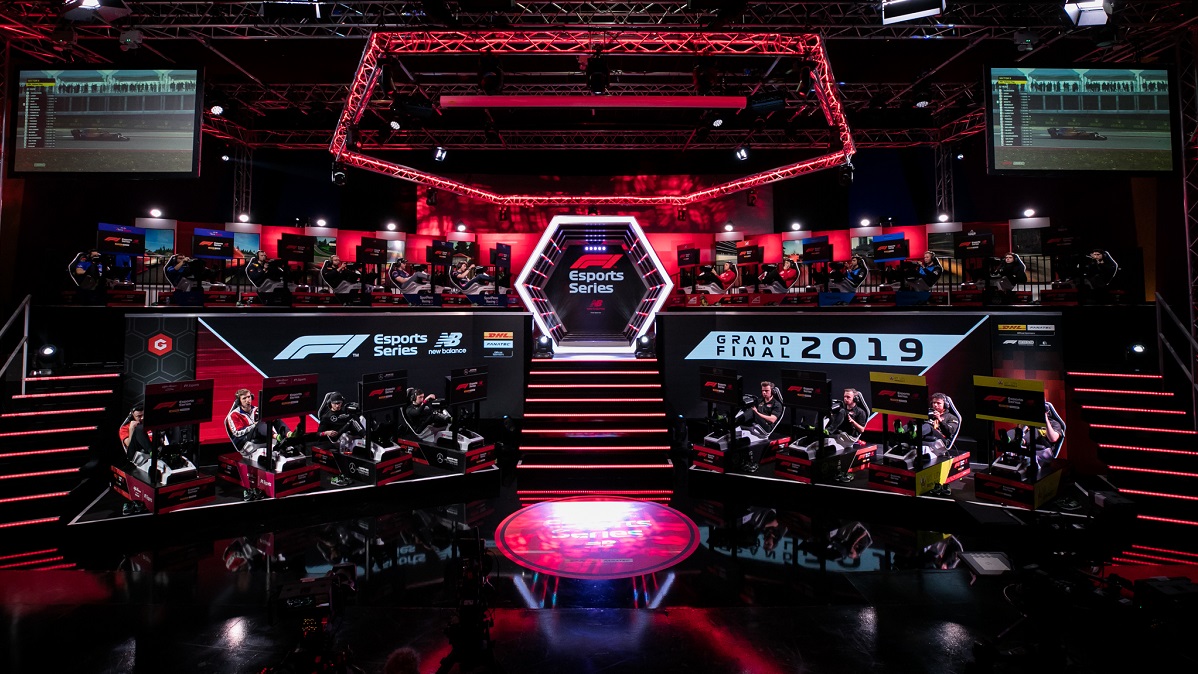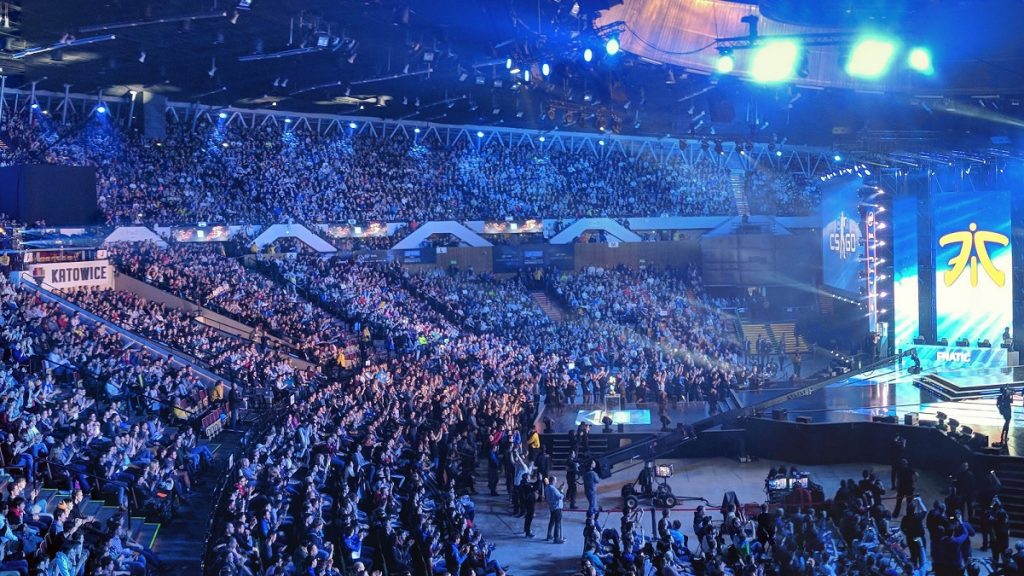The roar inside a packed stadium is felt more than heard, a kind of whole-body buzz. As the announcer on the PA brings the crowd to a crescendo, techno music pumping and lights strafing our heads, distant figures file onto the stage, sit in front of keyboards and PC screens, and fit helicopter-grade headphones over their ears to shut out the sound of 10,000 people chanting their names.
Two years ago I traveled to Katowice, Poland, to make a short video documentary about e-sports. The city’s massive Spodek arena hosts some of the largest professional gaming events in the world, including the Intel Extreme Masters world championships for first-person shooter Counter-Strike and high-speed strategy game StarCraft. IEM 2018 was the biggest yet, with a million-dollar prize pot and around 100,000 fans turning up to cheer on their favorite teams.
This year, those teams played in silence. On February 23, with covid-19 cases popping up across Europe, Katowice’s local government pulled the plug half a day before the event began. Players could compete, but without a live audience. “To see it empty was utterly heartbreaking,” says Michal Blicharz, vice president of pro gaming at ESL, the world’s largest e-sports organization, which puts on the Spodek events.
IEM 2020 was one of the first large sporting events to be hit by covid-19. Hundreds of others have been canceled since. For top athletes in the Premier League, NFL, NBA, NHL, and more, this meant sitting out most of the season at home. But if your home has an internet connection, you can still play video games.
WILL DOUGLAS HEAVEN
The last three months have seen the biggest crossover ever between mainstream sports and e-sports. Teams and promoters have been filling their suddenly empty schedules with video-game versions of their sports, keeping both fans and sponsors happy. Broadcasters such as Sky Sports, Fox Sports, and ESPN have shown hours of e-sports coverage, including football and soccer stars playing football and soccer sims Madden and FIFA. Formula One has run an entire season of grands prix using its officially licensed video game. And in Australia, NRL teams went head to head in Fortnite rather than rugby. “Suddenly, among all the noise of competitive entertainment, we were the only ones,” says Blicharz.
But with mainstream sports such as Premier League soccer now back on TV, what’s next for e-sports? Has this time in the limelight been enough for it to break through? Possibly, but not in its usual form. If e-sports has a prime-time future, it might be one that draws as much on Celebrity MasterChef as on hard-core gaming.
Back to basics
When lockdowns were enforced, e-sports were quicker to adapt than their mainstream cousins. Despite the upheaval, putting on a virtual event was more a step backwards than a total redesign, as it would be for most mainstream sports. Video games like Counter-Strike became stadium fillers only in the last decade. Before that, e-sports matches all took place on the internet—and qualifying rounds for tournaments often still do. “Taking things back 10 years wasn’t such a huge shock—we were still able to operate,” says Blicharz.
For real sports teams, adjusting wasn’t quite so easy—although some were better prepared than others. A handful of teams have been dabbling in e-sports for a while. The Dallas Cowboys have a large e-sports center, for example. In Europe, the Premier League puts on a season of FIFA matches alongside its main fixtures. The Football Federation in Australia runs a similar e-sports league.
But it was motorsports that was best prepared and quickest to react. The FIA (Fédération Internationale de l’Automobile, or International Automobile Federation), which is the international governing body for many motorsports from drag racing to Formula One,has been investing in e-sports for several years: Formula One has run a championship for its officially licensed video game since 2017.
This previous experience meant that when live events were pulled, Formula One, Formula E, IndyCar, and NASCAR were quick to plug the holes with video-game versions.

GFINITY
The 2020 virtual grand prix was put together from scratch in five days, says Paul Kent, head of e-sports and competitive gaming at Gfinity, a UK firm that puts on e-sports events and worked with Formula One on this year’s races. In what was pitched as a charity event, celebrities and stars from other sports were invited to race alongside drivers from Formula One’s e-sports and mainstream rosters.
The first challenge was shipping more than a dozen large simulation rigs to participants across Europe, just as transport hubs were shutting down. Rather than video-game controllers, Formula One e-sports use cockpit-size simulators. These were sent out in flight cases containing chassis, seat, steering wheel, foot pedals—not to mention powerful PC and large screen.
